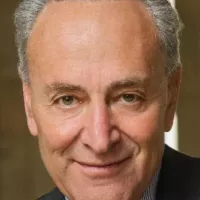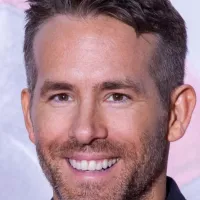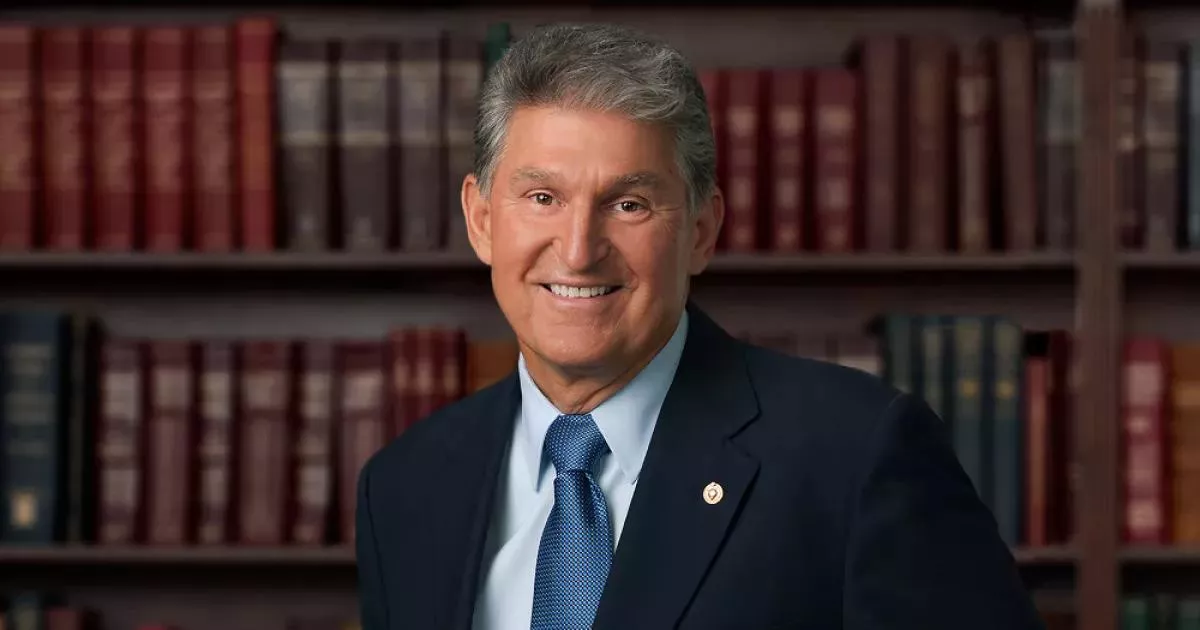How Joe Manchin built a successful career. Explore key moments that defined the journey.
Joe Manchin is an American businessman and former politician who served as a U.S. Senator for West Virginia from 2010 to 2025. Initially a Democrat, he later registered as an independent. Prior to his Senate career, Manchin was the 27th Secretary of State of West Virginia (2001-2005) and the 34th Governor of West Virginia (2005-2010). Before entering public service, he co-founded and led Enersystems, a family-owned coal brokerage firm.
1982: Elected to West Virginia House of Delegates
In 1982, Joe Manchin was elected to the West Virginia House of Delegates at age 35.
1986: Elected to West Virginia Senate
In 1986, Joe Manchin was elected to the West Virginia Senate, where he served until 1996.
1988: Founded Enersystems
In 1988, Joe Manchin founded Enersystems, a waste coal brokerage company based in Fairmont, West Virginia.
1996: Lost Gubernatorial Primary
In 1996, Joe Manchin ran for governor but lost the Democratic primary election to Charlotte Pritt.
2000: Entered Politics and Gave Control of Enersystems to Son
In 2000, Joe Manchin entered politics and gave control of Enersystems' daily operations to his son, Joe Manchin IV.
2000: Elected Secretary of State
In 2000, Joe Manchin was elected Secretary of State of West Virginia, defeating Libertarian candidate Poochie Myers.
2001: Secretary of State of West Virginia
In 2001, Joe Manchin became the 27th Secretary of State of West Virginia.
2003: Announced Intention to Run for Governor
In 2003, Joe Manchin announced his intention to challenge incumbent Democratic governor Bob Wise in the 2004 Democratic primary.
2004: Elected as Governor of West Virginia
In 2004, Joe Manchin won the West Virginia gubernatorial election by a large margin.
2004: Won Democratic Primary and General Election
In 2004, after Bob Wise decided not to seek reelection, Joe Manchin won the Democratic primary and general election by large margins.
2008: Reelection to Second Term
In 2008, Joe Manchin easily won reelection to a second term as governor against Republican Russ Weeks, capturing 69.81% of the vote and winning every county.
2008: Re-elected as Governor of West Virginia
In 2008, Joe Manchin was re-elected as the Governor of West Virginia by an even larger margin than his first election.
2009: Financial Disclosures
In 2009, Joe Manchin's financial disclosures revealed that his earnings from Energysystems were $1,363,916. Environmentalists criticized Manchin for his family ties to the coal industry, suggesting his opposition to certain health regulations stemmed from his stake in the industry.
July 20, 2010: Announced Senate Run
On July 20, 2010, Joe Manchin announced he would seek the Senate seat in a special election for the remaining two years of Byrd's term.
November 15, 2010: Sworn into the U.S. Senate
On November 15, 2010, Joe Manchin was first sworn in to the U.S. Senate by Vice President Joe Biden, succeeding interim senator Carte Goodwin.
December 9, 2010: Manchin votes against cloture for National Defense Authorization Act
On December 9, 2010, Joe Manchin was the sole Democrat to vote against cloture for the 2011 National Defense Authorization Act, which contained a provision to repeal Don't Ask, Don't Tell. He cited the advice of retired military chaplains as a basis for his decision.
2010: Elected as U.S. Senator
In 2010, Joe Manchin became a United States Senator representing West Virginia.
2010: Manchin calls for Affordable Care Act repairs
In 2010, Joe Manchin called for "repairs" of the Affordable Care Act and repeal of the "bad parts of Obamacare."
2010: Manchin delivers commencement address at Davis & Elkins College
In 2010, Joe Manchin delivered a commencement address at Davis & Elkins College and received an honorary degree from the institution.
2010: Manchin absent for DREAM Act vote
In 2010, Joe Manchin was absent from a vote on the DREAM Act. He is opposed to the DREAM Act, and supports construction of a wall along the southern border of the United States.
2010: Won Special Election to the Senate
In 2010, Joe Manchin won the special election to fill the Senate seat after Robert Byrd's death, receiving 53.5% of the vote.
2010: Financial Disclosures
In 2010, Joe Manchin's financial disclosures showed his earnings from Energysystems were $417,255. Environmentalists criticized Manchin for his family ties to the coal industry, suggesting his opposition to certain health regulations stemmed from his stake in the industry.
June 2011: Manchin seeks crackdown on Bitcoin transactions
In June 2011, Joe Manchin, alongside Senator Chuck Schumer, advocated for stricter regulation of Bitcoin transactions due to concerns that they facilitated illegal drug trade. They highlighted the lack of traditional banking trails and the use of anonymizing networks like Tor, which made it difficult to trace transactions.
June 21, 2011: Speech on reducing military presence in Afghanistan
On June 21, 2011, Joe Manchin delivered a speech on the Senate floor calling for a "substantial and responsible reduction in the United States' military presence in Afghanistan," stating, "We can no longer afford to rebuild Afghanistan and America. We must choose. And I choose America."
July 2011: Manchin introduces Silver Alert Act
In July 2011, Joe Manchin introduced the Silver Alert Act, which aimed to establish a nationwide network for locating missing adults and senior citizens, inspired by the AMBER Alert system. He also sponsored the National Yellow Dot Act, a voluntary program to alert emergency personnel to the availability of personal and medical information after car accidents.
2011: Support for Energy Tax Prevention Act
In 2011, Joe Manchin was the only Democratic senator to support the Energy Tax Prevention Act, which aimed to prevent the EPA from regulating greenhouse gases. This action underscored his stance on energy and environmental issues.
May 2012: Manchin proposes amendment to reclassify hydrocodone
In May 2012, Joe Manchin successfully proposed an amendment to the Food and Drug Administration reauthorization bill to reclassify hydrocodone as a Schedule II controlled substance in an effort to combat prescription drug abuse.
2012: Run for Reelection to Full Term
In 2012, Joe Manchin ran for reelection to a full term. He did not endorse President Barack Obama, citing differences in economic and energy policies.
2012: Support for GOP effort against EPA regulations
In 2012, Joe Manchin supported a Republican effort to "scuttle Environmental Protection Agency regulations that mandate cuts in mercury pollution and other toxic emissions from coal-fired power plants".
2012: Elected to Full Senate Term
In 2012, Joe Manchin was elected to a full term in the Senate, securing 60.6% of the vote.
2012: National Rifle Association endorses Manchin
In 2012, Joe Manchin's candidacy was endorsed by the National Rifle Association (NRA), which gave him an "A" rating.
April 17, 2013: Manchin-Toomey bill defeated in Senate
On April 17, 2013, the Manchin-Toomey bill, which would have strengthened background checks on gun sales, was defeated in the Senate by a vote of 54–46. 60 votes would have been required to pass it.
August 2013: Response to Ghouta chemical attack
Following the Ghouta chemical attack in August 2013 during the Syrian Civil War, Joe Manchin stated, "There is no doubt that an attack occurred and there is no doubt it was produced under the Assad regime." He opposed any strikes on the Syrian Government in retaliation and introduced a joint resolution for a long-term strategy on Syria.
2013: Amendment to cap contractor salaries
In 2013, Joe Manchin successfully amended the National Defense Authorization Act to cap contractors' taxpayer-funded salaries at $230,000. This legislation aimed to reduce the use of overseas service and security contractors.
January 7, 2014: Remarks on Afghanistan troop levels
On January 7, 2014, Joe Manchin made remarks in a press conference arguing that "all of the money and all of the military might in the world will not change that part of the world." He said that by the end of the year, the American troops in that country should be at Bagram Airfield alone.
September 16, 2014: Opposition to arming Syrian opposition fighters
On September 16, 2014, Joe Manchin announced that he would vote against a possible Senate resolution to arm Syrian opposition fighters, stating, "At the end of the day, most of the arms that we give to people are used against us. Most of the people we train turn against us."
December 2014: Letter to EPA regarding power plant rule
In December 2014, Joe Manchin was one of six Democratic senators who signed a letter to the EPA urging the agency to give states more time to comply with its rule on power plants and calling for an elimination of the 2020 targets in the final rule. This demonstrated his concern for the impact of environmental regulations on states.
2016: Manchin addresses opioid crisis
During 2016, Joe Manchin read to the Senate several letters from constituents about loved ones' deaths from opioids and urged his colleagues to act to prevent more deaths.
January 14, 2017: Manchin expresses concern over Obamacare repeal
On January 14, 2017, Joe Manchin expressed concern at the strict party-line vote on repealing Obamacare and said he could not, in good conscience, vote to repeal without a new plan in place. He added, however, that he was willing to work with Trump and the GOP to formulate a replacement.
February 2017: Vote to confirm Scott Pruitt as EPA Administrator
In February 2017, Joe Manchin was one of two Democratic senators to vote to confirm Scott Pruitt as Administrator of the Environmental Protection Agency. This vote signaled his alignment with the Trump administration's approach to environmental regulation.
February 2017: Manchin introduces the HIRE Veterans Act
In February 2017, Joe Manchin, along with Roy Blunt, introduced the HIRE Veterans Act. This act established a tiered recognition program within the Department of Labor to acknowledge and award employers for their contributions to veteran employment.
April 2017: Letter to Trump on Chinese steel
In April 2017, Joe Manchin was one of eight Democratic senators to sign a letter to President Trump noting that government-subsidized Chinese steel had been placed into the American market in recent years below cost and had hurt the domestic steel industry and the iron ore industry. The letter called on Trump to raise the steel issue with President of the People's Republic of China Xi Jinping.
April 2017: Statement on North Korea
In April 2017, following a North Korea senior official declaring that the U.S. had created "a dangerous situation in which a thermonuclear war may break out at any minute," Joe Manchin stated that North Korea had "to understand that we will retaliate" and that he did not believe the U.S. would not respond if North Korea continued to play "their games."
June 2017: Manchin warns of opioid crisis worsening with Obamacare repeal
In June 2017, Joe Manchin and Bob Casey Jr. of Pennsylvania warned that repealing Obamacare would worsen the opioid crisis.
June 2017: Co-sponsorship of Israel Anti-Boycott Act
In June 2017, Joe Manchin co-sponsored the Israel Anti-Boycott Act (S.270), which made it a federal crime for Americans to encourage or participate in boycotts against Israel and Israeli settlements in the occupied Palestinian territories if protesting actions by the Israeli government.
June 2017: Support for withdrawal from Paris climate accord
In June 2017, Joe Manchin supported President Donald Trump's withdrawal from the Paris climate accord. Manchin stated that he supported a "cleaner energy future" but felt the Paris deal failed to balance the environment and the economy.
June 2017: Vote against resolution disapproving arms sales to Saudi Arabia
In June 2017, Joe Manchin was one of five Democrats who, by voting against a Senate resolution disapproving of arms sales to Saudi Arabia, ensured its failure. Potential primary opponent Paula Jean Swearengin charged that because of Manchin's vote, weapons sold to the Saudis "could possibly end up in the hands of terrorists."
July 2017: Manchin discusses bipartisan efforts on healthcare
In July 2017, Joe Manchin mentioned that he was one of about ten senators from both parties who had been "working together behind the scenes" to formulate a new health-care program, but that there was otherwise insufficient bipartisanship on the issue.
July 2017: Urging Trump to block sale of Chicago Stock Exchange
In July 2017, Joe Manchin urged Trump to block the sale of the Chicago Stock Exchange to Chinese investors, arguing that China's "rejection of fundamental free-market norms and property rights of private citizens makes me strongly doubt whether an Exchange operating under the direct control of a Chinese entity can be trusted to 'self-regulate' now and in the future."
July 26, 2017: Manchin opposes Trump's proposed ban on transgender service
On July 26, 2017, Joe Manchin voiced opposition to Trump's proposed ban on transgender service in the United States military.
September 2017: Manchin expresses skepticism of single-payer health care
In September 2017, Joe Manchin released a statement expressing that he was skeptical of a single-payer health care system being "the right solution" while noting his support for the Senate considering "all of the options through regular order so that we can fully understand the impacts of these ideas on both our people and our economy."
October 2017: Manchin discusses gun legislation after Las Vegas shooting
In October 2017, following the Las Vegas shooting, Joe Manchin stated that it would require President Trump's involvement and a common-sense approach to gun ownership to make progress on gun legislation. He also mentioned that he would not rule out reviving the Manchin-Toomey bill if the legislation attracted enough Republican cosponsors.
November 2017: Co-sponsorship of bill to broaden foreign investment prevention
In November 2017, Joe Manchin was one of nine senators to co-sponsor a bill that would broaden the federal government's ability to prevent foreign purchases of U.S. firms by increasing the strength of the Committee on Foreign Investment in the United States (CFIUS). The CFIUS scope would be expanded to allow it to review and possibly decline smaller investments.
November 2017: Reaction to China Energy Investment in West Virginia
In November 2017, after the West Virginia Commerce Department announced an agreement with China Energy to invest $83.7 billion in shale gas development and chemical manufacturing projects in West Virginia, Joe Manchin expressed enthusiasm, stating he was satisfied that China Energy recognized West Virginians as the hardest-working people in the world.
2017: Manchin proposes LifeBOAT Act to address opioid crisis
During 2017, Joe Manchin took "an unusual proposal" to President Trump to address the opioid crisis and called for a "war on drugs" that involves not punishment but treatment. He proposed the LifeBOAT Act, which would fund treatment, and opposed marijuana legalization.
2017: Support for Shayrat missile strike
In 2017, Joe Manchin supported the Shayrat missile strike launched by order of President Trump in response to a chemical weapons attack allegedly perpetrated by the Syrian Government, stating that "yesterday's strike was important to send a message to the Syrian regime and their Russian enablers that these horrific actions will not be tolerated."
January 2018: Manchin votes to confirm Alex Azar as Health Secretary
In January 2018, Joe Manchin was one of six Democrats who broke with their party to vote to confirm Trump's nominee for Health Secretary, Alex Azar.
February 14, 2018: Manchin cosponsors S.515
On February 14, 2018, Joe Manchin cosponsored S.515, a bill designed to amend the Internal Revenue Code of 1986 to ensure that all provisions apply equally to legally married same-sex couples, aligning their treatment with that of other married couples under federal law.
March 2018: Blaming China for Trump's Tariffs
In March 2018, Joe Manchin blamed China for Trump's imposition of tariffs on steel and aluminum imports, noting that the U.S. was the largest importer of steel while 50% of steel was produced in China, and that he believed that prices would increase as a result of the tariffs.
March 2018: Manchin advocates for Manchin-Toomey bill as base for gun control law
In a March 2018 interview, a month after the Stoneman Douglas High School shooting and shortly before the March For Our Lives demonstrations, Joe Manchin stated that the Manchin-Toomey bill should serve as the base for a new gun control law and that Trump expressing support for background checks would set his legacy.
May 2018: Accusation against Kim Jong-un
In May 2018, Joe Manchin accused Kim Jong-un of accelerating "the nuclear threat" of North Korea in a manner that would enable him to receive concessions and that Kim Jong-un was "in a serious, serious problem with his country and the people in his country" without China.
June 18, 2018: Manchin opposes Trump administration family separation policy
On June 18, 2018, Joe Manchin came out against the Trump administration family separation policy.
October 2018: Opposition to entitlement reform
In October 2018, Joe Manchin expressed strong opposition to entitlement reform, describing Mitch McConnell's comments on the need to reform entitlement programs such as Social Security, Medicaid, and Medicare as "absolutely ridiculous."
November 2018: Renewed calls for troop withdrawal from Afghanistan
Following the deaths of three American soldiers in Afghanistan in November 2018, Joe Manchin renewed his calls for the withdraw of American troops from the country, saying that both presidents Obama and Trump had expressed support for taking troops out of the country but had not done so.
2018: Manchin secures opioid funding for West Virginia in Opioid Crisis Response Act
In 2018, Joe Manchin ensured that the Opioid Crisis Response Act included provisions for additional opioid funding for West Virginia. This was after highlighting that the original bill's funding formula, based on overall overdose death counts, disadvantaged states with high overdose rates. He aimed to incentivize companies to develop non-addictive alternatives for pain relief.
2018: Challenged in Democratic Primary
In 2018, Joe Manchin was challenged in the Democratic primary by Paula Jean Swearengin. He won the primary with 70% of the vote.
2018: Won Second Senate Term
In 2018, Joe Manchin won a second term in the Senate with 49.6% of the vote.
2018: Manchin emphasizes support for Obamacare in reelection campaign
In his 2018 reelection campaign, Joe Manchin emphasized his support for Obamacare, running an ad where he criticized a lawsuit that sought to repeal the Affordable Care Act.
January 8, 2019: Manchin votes to advance bill imposing sanctions against Syrian government
On January 8, 2019, Joe Manchin was one of four Democrats to vote to advance a bill imposing sanctions against the Syrian government and furthering U.S. support for Israel and Jordan. This occurred as Democratic members of the chamber employed tactics to end the United States federal government shutdown of 2018–2019.
January 2019: Support for bills to end government shutdown
In January 2019, Joe Manchin supported both Republican and Democratic bills to end a government shutdown. He was the only Democrat to break from his party and vote in favor of the Republican proposal.
January 2019: Manchin cosponsors the VA Provider Accountability Act
In January 2019, Joe Manchin was one of five senators to cosponsor the VA Provider Accountability Act. This bipartisan bill sought to amend Title 38 of the United States Code to allow the under secretary of health to report adverse personnel actions related to certain health care employees at the National Practitioner Data Bank, along with applicable state licensing boards.
January 2019: Manchin introduces the American Miners Act of 2019
In January 2019, Joe Manchin was one of six Democratic senators to introduce the American Miners Act of 2019, a bill that would amend the Surface Mining Control and Reclamation Act of 1977 to swap funds in excess of the amounts needed to meet existing obligations under the Abandoned Mine Land fund to the 1974 Pension Plan as part of an effort to prevent its insolvency as a result of coal company bankruptcies and the 2008 financial crisis.
February 2019: Drafting of Middle East policy bill
In February 2019, Joe Manchin and Republican Marco Rubio drafted a Middle East policy bill with provisions that rebuked President Trump over withdrawals of troops from Syria and Afghanistan and a measure authorizing state and municipal governments to punish companies after they oppose Israel via boycott, divestment or sanctions.
February 2019: Opposition to the Green New Deal
In February 2019, Joe Manchin expressed opposition to the Green New Deal after Republican Senate Majority Leader Mitch McConnell called for a vote on the plan.
March 2019: Manchin cosponsors bill to undo drafting error in Tax Cuts and Jobs Act
In March 2019, Joe Manchin cosponsored a bipartisan bill to correct a drafting error in the Tax Cuts and Jobs Act. The error mandated stores and restaurants to write off renovation costs over 39 years. The bill aimed to allow businesses to immediately deduct these renovation costs.
March 18, 2019: Manchin not a cosponsor of the Equality Act
As of March 18, 2019, Joe Manchin was the only member of the Senate Democratic Caucus not cosponsoring the Equality Act, citing concerns that the bill lacked sufficient guidance for local officials responsible for its implementation.
April 2019: Manchin cosponsors Protecting Jessica Grubb's Legacy Act
In April 2019, Joe Manchin cosponsored the Protecting Jessica Grubb's Legacy Act. This legislation aimed to allow healthcare providers to share medical records of patients being treated for substance use disorder, provided the patient had given consent. It also sought to prevent the unintentional provision of opioids to individuals in recovery.
April 2019: Manchin endorses Susan Collins
In April 2019, Joe Manchin endorsed Republican senator Susan Collins in her 2020 reelection campaign.
April 2019: Vote to confirm David Bernhardt as Secretary of the Interior
In April 2019, Joe Manchin was one of three Democratic senators who voted with Republicans to confirm David Bernhardt, an oil executive, as Secretary of the Interior. This vote reflected his willingness to support individuals with ties to the energy industry.
May 2019: Manchin announces funding for West Virginia through Rural Communities Opioid Response Program
In May 2019, Joe Manchin and Capito announced $600,000 in funding for West Virginia through the Department of Health and Human Services' Health Resources and Services Administration's Rural Communities Opioid Response Program. Manchin emphasized that combating the opioid epidemic in West Virginia was a top priority.
May 2019: Manchin cosponsors South China Sea and East China Sea Sanctions Act
In May 2019, Joe Manchin cosponsored the South China Sea and East China Sea Sanctions Act, a bipartisan bill reintroduced by Marco Rubio and Ben Cardin. This bill was intended to disrupt China's consolidation or expansion of its claims of jurisdiction over both the sea and air space in disputed zones in the South China Sea.
May 2019: Manchin and Collins defend Affordable Care Act
In a May 2019 letter to Attorney General William Barr, Joe Manchin and Republican Susan Collins wrote that the Affordable Care Act "is quite simply the law of the land, and it is the Administration's and your Department's duty to defend it" and asserted that Congress could "work together to fix legislatively the parts of the law that aren't working".
July 2019: Manchin introduces Providing Veterans Access to In-State Tuition Act
In July 2019, Joe Manchin and Marsha Blackburn introduced the Providing Veterans Access to In-State Tuition Act. This bill aimed to eliminate the three-year post-discharge requirement, enabling student veterans to receive in-state tuition rates from public schools if they utilized their Post 9/11 GI Bill benefits.
July 2019: Manchin calls for $1.4 billion settlement from Reckitt Benckiser Group
In July 2019, Joe Manchin called for a $1.4 billion settlement from the Reckitt Benckiser Group to be allocated towards programs and resources aimed at addressing the opioid epidemic.
August 1, 2019: Opposition to bipartisan budget deal
On August 1, 2019, Joe Manchin joined Tom Carper and Republicans Mitt Romney and Rick Scott in issuing a statement asserting that "as former Governors, we were responsible for setting a budget each year that was fiscally responsible to fund our priorities. That's why today, we, as U.S. Senators, cannot bring ourselves to vote for this budget deal that does not put our country on a fiscally sustainable path."
August 2019: Manchin announces grants to aid homeless veterans
In August 2019, Joe Manchin and Capito announced over $7 million in grants for homeless veterans through the U.S. Department of Veterans Affairs' (VA) Supportive Services for Veteran Families (SSVF) Program.
August 2019: Manchin calls for action on gun safety after mass shootings
In August 2019, following two mass shootings in El Paso, Texas, and Dayton, Ohio, Joe Manchin stated that Trump had a "golden opportunity to start making America safe again by starting with this basic building block of background checks." He also disagreed with House Minority Whip Steve Scalise's position on existing gun background check measures. Later that month, he met with Trump to discuss gun-control legislation.
September 2019: Manchin supports funding for border fencing
In September 2019, Joe Manchin was the only Democrat on the Senate Appropriations panel to vote for a $71 billion homeland security measure that granted Trump the $5 billion he had previously requested to build roughly 200 miles of fencing along the U.S.-Mexico border.
October 2019: Manchin signs bipartisan letter to Trump regarding Turkey and Syria
In October 2019, Joe Manchin was one of six senators to sign a bipartisan letter to Trump. The letter called on him to "urge Turkey to end their offensive and find a way to a peaceful resolution while supporting our Kurdish partners to ensure regional stability" and argued that to leave Syria without installing protections for American allies would endanger both them and the US.
2020: Key Swing Vote in the Senate
After the 2020 elections, Joe Manchin became a key swing vote in the Senate, which was split 50-50 between Democrats and Republicans.
2020: Letter to EPA regarding power plant rule
In December 2014, Joe Manchin was one of six Democratic senators who signed a letter to the EPA urging the agency to give states more time to comply with its rule on power plants and calling for an elimination of the 2020 targets in the final rule. This call for elimination was related to the 2020 targets set by the EPA.
February 2, 2021: Manchin announces opposition to $15 federal minimum wage
On February 2, 2021, Joe Manchin announced his opposition to raising the federal minimum wage from $7.25 to $15 per hour, but he indicated openness to a smaller increase, potentially to $11 per hour, with adjustments for regions with higher costs of living. He also suggested indexing the minimum wage to prevent it from becoming a political issue in the future.
March 2021: Manchin votes for amendment to rescind funding from public schools
In March 2021, Joe Manchin was the only Democrat to vote in favor of a failed amendment that sought to rescind funding from public schools allowing transgender youth to participate in sports teams aligning with their gender identity.
June 6, 2021: Manchin expresses opposition to the For the People Act
On June 6, 2021, Joe Manchin voiced his opposition to the For the People Act due to a lack of bipartisan support. Manchin expressed support for a reinforced version of the John Lewis Voting Rights Act, urging its passage in the Senate.
December 2021: Manchin announces opposition to Build Back Better Act
In December 2021, Joe Manchin signaled that he was not likely to vote for the Biden-supported Build Back Better Act, citing growing inflation, the national debt, and the Omicron variant of the SARS-CoV-2 virus as reasons for opposition. This led to a response from the White House and an appeal from the United Mine Workers of America.
2021: Opposition to Clean Electricity Performance Program
In 2021, Joe Manchin opposed the "Clean Electricity Performance Program" in a budget reconciliation bill, which led to its removal from the bill. This action highlighted his influence on energy policy.
February 6, 2022: Manchin Endorsed Senator Lisa Murkowski
On February 6, 2022, Joe Manchin endorsed Senator Lisa Murkowski in her reelection campaign that year.
March 2022: Manchin leads drafting of Ban Russian Energy Imports Act
In March 2022, during the Russian invasion of Ukraine, Joe Manchin and Murkowski led the drafting of the Ban Russian Energy Imports Act. The act would declare a national emergency pursuant to existing law and ban most fossil fuel imports from Russia for the war's duration. At introduction it was sponsored by 18 senators, a mixture of Republicans, Democrats, and independents.
March 25, 2022: Manchin Announces Vote to Confirm Ketanji Brown Jackson
On March 25, 2022, Joe Manchin announced that he would vote to confirm Ketanji Brown Jackson to the Supreme Court.
July 27, 2022: Manchin expresses support for Inflation Reduction Act
On July 27, 2022, Joe Manchin expressed his support for the Inflation Reduction Act.
August 7, 2022: Senate passes Inflation Reduction Act with Manchin's vote
On August 7, 2022, the Senate passed the Inflation Reduction Act on a 51–50 vote, with Joe Manchin voting in favor and Vice President Kamala Harris breaking a tie.
November 2022: Manchin votes to pass the Respect for Marriage Act
In November 2022, Joe Manchin reversed his previous stance and voted in favor of advancing and passing the Respect for Marriage Act, which provides federal protection for same-sex marriages.
February 2023: Manchin expresses anger over Inflation Reduction Act implementation
In February 2023, Politico reported that Joe Manchin was "livid" over how the Biden administration was implementing the Inflation Reduction Act, especially concerning delays in new guidelines on electric vehicle tax credits.
May 2023: Manchin Refuses to Rule Out Presidential Run
In May 2023, Joe Manchin refused to rule out running for president of the United States as a third-party candidate in 2024. Reports indicated that the centrist group No Labels was seeking to support a third-party presidential campaign and viewed Manchin as a potential candidate.
June 2023: Manchin Again Refuses to Rule Out Presidential Run
In June 2023, Joe Manchin again refused to rule out running for president of the United States as a third-party candidate in 2024. Reports indicated that the centrist group No Labels was seeking to support a third-party presidential campaign and viewed Manchin as a potential candidate.
June 2023: Refusal to Rule Out Presidential Run
In June 2023, Joe Manchin refused to rule out running for president as a third-party candidate instead of seeking reelection in 2024.
July 17, 2023: Manchin Headlined No Labels Town Hall
On July 17, 2023, Joe Manchin, serving as a No Labels National Co-Chair, and former U.S. Ambassador to Russia Jon Huntsman Jr. headlined a No Labels Common Sense Agenda Town Hall in Manchester, New Hampshire.
November 9, 2023: Manchin Announces He Will Not Seek Reelection
On November 9, 2023, Joe Manchin announced that he will not seek reelection in 2024, citing months of deliberation and a desire to explore mobilizing the middle ground in American politics.
November 2023: Announcement of Not Running for Reelection
In November 2023, Joe Manchin announced that he would not run for reelection.
February 15, 2024: Manchin Suggests Romney or Portman as Potential Running Mate
On February 15, 2024, Joe Manchin suggested that he would pick U.S. senator Mitt Romney or former U.S. senator Rob Portman as his running mate if he ran for president during a City Club of Cleveland forum.
February 16, 2024: Manchin Announces He Will Not Run for President
On February 16, 2024, Joe Manchin announced that he would not run for president.
May 31, 2024: Announcement to Leave Democratic Party
On May 31, 2024, Joe Manchin announced that he would leave the Democratic Party and file as an independent. He remained a member of the Senate Democratic Caucus, while accusing both parties of partisan extremism.
July 2024: Manchin introduces Energy Permitting Reform Act of 2024
In July 2024, Joe Manchin and John Barrasso introduced S. 4753, the Energy Permitting Reform Act of 2024, aiming to speed the permitting process for energy infrastructure and mineral development. The bill would affect both fossil fuel and electric power transmission projects.
July 21, 2024: Manchin Expressed Interest in Running for President
After President Biden withdrew from the 2024 race on July 21, 2024, Joe Manchin expressed interest in running for president at the 2024 Democratic National Convention, but opted not to, saying he would have preferred that the convention be an open contest. After Kamala Harris picked Tim Walz as her running mate, Manchin said, "I can think of no one better than Governor Walz to help bring our country closer together", although he refrained from formally endorsing Harris. Manchin ultimately refused to endorse Harris, citing her call to end the filibuster in the United States Senate.
2024: Manchin criticizes Democratic Party positions after Kamala Harris loses election
After Kamala Harris' loss in the 2024 United States presidential election to Donald Trump, Joe Manchin criticized many of the Democratic Party's positions and said its brand was "toxic." Manchin stated that he would remain an independent and had no plans to run for political office in the future.
2024: Manchin Registers as Independent and Declines Reelection Bid
In 2024, Joe Manchin announced he was registering as an independent. Later in 2024 he announced that he would not run for reelection. Manchin expressed regret over voting for the American Rescue Plan, attributing it to increased inflation.
2024: Manchin Announces He Will Not Seek Reelection
In 2024, Joe Manchin announced that he would not seek reelection.
2024: Left the Democratic Party
In 2024, Joe Manchin left the Democratic Party to become an independent.
2024: Registered as Independent
In 2024, Joe Manchin registered as an independent, ending his affiliation with the Democratic Party. He was West Virginia's only congressional Democrat until this point.
2024: No Reelection
Joe Manchin has said he will not run for reelection in 2024, indicating he may create a movement to mobilize the middle and bring Americans together. Senators urged Manchin not to run for president in 2024.
2025: Retirement from Senate
In 2025, Joe Manchin retired as a United States Senator from West Virginia.
Mentioned in this timeline

Donald John Trump is an American politician media personality and...

Bernie Sanders is a prominent American politician currently serving as...

Chuck Schumer is the senior United States Senator from New...
Fox News Channel FNC is a conservative American news and...
Ukraine is a large country in Eastern Europe second in...

Marco Rubio is an American politician attorney and diplomat He...
Trending

Dave Bautista born David Michael Bautista Jr is an American actor and retired professional wrestler He achieved significant recognition during...

3 months ago Ben Shelton faces Kamil Majchrzak at ATP Basel after Rune's setback: Predictions.

6 months ago Ryan Reynolds Hints at Deadpool Joining Avengers in Cryptic Instagram Post
8 months ago Chiefs Dominate 2025 NFL Schedule with Seven Prime-Time Games

3 months ago Jannik Sinner Dominates, Reaches Paris Masters Final, Eyes No. 1 Ranking Return

3 months ago Kendall Jenner Celebrates Her 30th Birthday with Nude Beach Photos and Bikini Looks
Popular

Thomas Douglas Homan is an American law enforcement officer who...

William Franklin Graham III commonly known as Franklin Graham is...

Jupiter is the fifth and largest planet from the Sun...

XXXTentacion born Jahseh Dwayne Ricardo Onfroy was a controversial yet...

Instagram is a photo and video-sharing social networking service owned...

Kristi Noem is an American politician who has served as...
